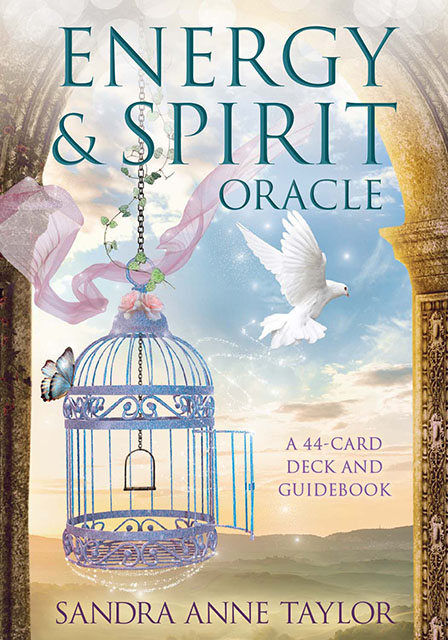Theme for July, August, September issue is:
“God Taps”
(Due May 1)
SUBMISSION GUIDELINES AND SUGGESTIONS
• Articles are written from the author’s own life experiences,
surrounding the theme of each issue.
• Author will work with The Journey Magazine’s staff to edit each
article.
• If TJM chooses the author to be featured in the magazine,
the author will work with TJM’s staff to answer questions about their
process and article in a timely manner.
Deadline: The 25th of the month 2 months prior to publication. Example: The
deadline for the April/May/June issue is February 25.
Limit: 700 – 1200 words, (including title,
byline and biography).
Elements: Title and Author at top, followed by body, with paragraphs
indented.
Format: Microsoft Word .DOC
Document Title: Save articles with JM (Journey Magazine) Author’s
Name and Word Count. Example JMChafer900.doc
Send to: submissions@thejourneymag.com
Optional: Large (hi resolution) picture of author’s head and shoulders
(minimum 300 dpi)
Optional: Contributor Biography of no more than 75 words
SUGGESTIONS FOR WRITING:
1) Quoting other sources
Starting a story is difficult; it’s the hardest part about writing. Many authors use quotes from other prominent gurus as a way to help them frame precisely what it is they are about to tell the audience. While there is nothing wrong with this practice, I discourage it for the following reasons:
+ It happens so often that it has become cliche. In magazines such as The Journey, which depend on people who are not professional writers, it happens more often than not. The result is that the magazine loses a sense of variety – which is in itself the core strength of a magazine. In the editor’s effort to invigorate the magazine’s flow, he is forced to move around the quotes, changing the very structure of writers’ articles – something that is unsatisfying to writers and editors alike.
+ It sets up the writer as a secondary authority. In a sense, if you start an article with a strong quote from a third-party source or guru, you are telling the reader, “This guy says it better than I ever could.” While that may be true (the way a guru says things is as much a part of a guru’s power as the way he/she sees things), it’s not in your best interest as the author to broadcast it to the reader.
Instead, try pushing yourself to seek clarity through your own words. Ask yourself: “If someone were to take away just one point from this article, what would I want it to be?” Then write that, in your own words. That’s the beginning of your article, and everything else can/should flow from there.
Or, to put it in the form of a new-age contradiction: By quoting a guru, you may try to put yourself into the same rarified atmosphere as that guru. But instead, what you’re doing is emphasizing that you, yourself, have a guru whom the reader should follow. Only by using your own words – by failing to acknowledge the person whose wisdom you trust – will you gain the ultimate trust and following of your readers.
2) Writing in the plural first-person
Finding the right voice for an article can be difficult. Writing in the second person – “As someone committed to personal growth, it’s important for you to…” sounds arrogant and overly familiar. Yet, writing in the first person – “As someone committed to personal growth, I feel it’s important to…” sounds egotistical and seems to leave the reader out of it completely.
As a result, the solution that most writers seem to find is the first-person-plural: “As people committed to personal growth, we find it’s important to….” It’s inclusive yet personal. All is well, right?
Except here’s what’s wrong with it:
+ Nobody every really speaks this way, so when a reader is confronted with it, it sounds stilted and jarring. It forces the reader to actually think about something that should simply wash over him or her – and that distracts from the point of the story that you REALLY want the reader to focus on.
+ It’s really no more personal than using “I” – everybody knows that’s exactly what you’re trying to say. And it’s no less arrogant than using “you” – everybody knows you’re trying to tell them what to do (which, of course, is why they’re reading you in the first place).
+ It’s wishy-washy. It says, “I want to tell you something you may not want to hear, so I’m about to soften the message…” Think of it like a teacher, back in the days of corporal punishment, about to swat the backside of an unruly student, saying, “This is going to hurt me as much as it hurts you.” (But because he doesn’t want to use first person OR second person, he says, “We’re both going to be pained by this.”) What choice words do you think are going through the student’s mind at this point? Well, that’s what the readers are thinking too.
So what do I/you/we do about it?
Here are two solutions, only one of which is really the best.
+ Easy and a small improvement: Suck it up and say what you mean by choosing 1st or 2nd person.
+ Hard but great: I just read in one of this months’ articles that no matter what your guru says, growth is ultimately a personal journey. The best gurus don’t TELL you how to be enlightened; they SHOW you how to find enlightenment by yourself. So recognize that any time you use 1st or 2nd person (I/you/we) you are TELLING your readers what you want them to know. But if you can find a way to use the 3rd person (he/she/they) you are SHOWING them an example of someone else who learned what it is you hope your readers will learn. This is, without any close competition, the best way to make a point. Because by definition, when you use 3rd person, you are telling a story about someone else. People love reading stories and people learn more from stories than from lectures.
Consider the lasting power of Aesop. He never said, “Those of us who work hard and save our money will survive during the hard times that inevitably arise.” Instead, he told us a story about an ant, a grasshopper and the coming of winter. Thousands of people have written about industriousness and thrift, but other than Aesop and Benjamin, who among them is remembered for it?
What makes this so hard? It requires that you find a story about a person who has learned the hard way what you hope for your readers to learn the easy way.










I liked the editor’s advice on how to write a story. I feel I have alot of stories in me and at age 63.. I should!! Do you pay $ for stories? Sincerely, Barbara Brown
Hi Barbara, thank you for your interest. I am glad that you got a lot out of our editors suggestions. Unfortunately we do not have it in the budget to pay for articles that people submit. but feel free to if you wish. Clyde Chafer, publisher
Hi Clyde,
I’ll be working on this, as well as the many other projects in my life. ~ Namaste
Cara
the octopus strikes again…:)
I just submitted my article, thanks!
What are your publisher’s rights about submissions?
Hi, Thank you for your interest. If your piece is published, we simply ask you to request to reprint from the magazine and ask that credit is given to the Journey where you reprint.
I just finished an piece about choosing to forgive. I just found this website and saw where your feature article was on “Choices”, will you take the submission even though it is past the deadline?
Thank you!
Hi, sorry we are full with articles for this issue. We get quite a few submissions, so it is always best to get in before the deadline.
Thank you anyway
Hello!
I apologize if this question could be answered by browsing. I put in a good effort! I work for a non-profit farm animal sanctuary, Happy Trails, where we rescue, rehabilitate and re-home animals in cooperation with law enforcement and humane officers across Ohio. We have been in operation for going on 14 years and have rescued over 3000 animals.
I thought “The Journey” would be a great area to promote our first ever Happy Trails Art Barn event on March 9th. It should prove to be a great time with heavy vegan hors d’ oeuvres and wine, a professional harpist and singer/songwriter for music and plenty of high quality artistic items for sale.
I know I have missed the actual publication but was wondering if there was another area to promote this event through you.
Thanks!
Laurie Jackson
Projects Coordinator
Happy Trails Farm Animal Sanctuary
happytrailsfarm.org
hi…not really…too close to your event…best of luck with it
Laurie, I was browsing The Journal Magazine site, and saw your letter. My question is, where do I help your cause? I am an animal activist and would love to be a part of your cause. Tell me, where is Happy Trails located? Rescuing is a passion of mine. I have been looking to do this, as I know this is my lifes’ purpose for a long time. I would be honored to work with you. I am willing to re-locate if that,s what it takes. I expect no pay, only the personal rewards. I am a vegitarian and working on vegan. (need to quit fish, I know) I have 3 beautiful cats, and a cockatiel. I am desperatly wanting to stop factory farming. My heart goes out for those angel animals. I have been involved in protests, and am willing to fight for our best friends. This is my biggest passion. Thanks. Dee Get back to me. or call.
deefloyd1@yahoo.com
440-974-6448
Do you publish poetry also? I really enjoyed your spring edition, keep up the good work.
yes we do …thank you! Clyde
Hi Clyde!…I was wondering if you take Art
Work submissions…And if you do are there any special guidelines for this?…Thanx, Dan
Clyde, the meditation articles complimented each other and provided guidance that often comes in a 200 page manual. Thanks for including Elbert Crary’s writing. I am assisting Elinore Kurow’s article submission on life purpose. Her background in theosophy, metaphysics and art (oils) and music (classical piano) create a beautiful mix of living her purpose as a teacher of same. As an 80+ senior, she is fascinating. See you soon at the Expo. Annette